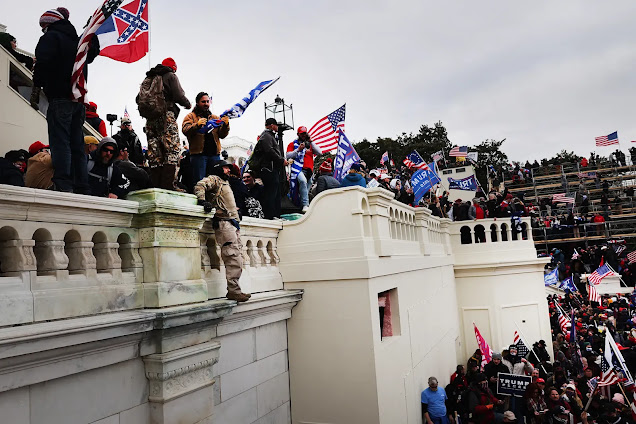Colorado judge rules Trump ‘engaged in an insurrection’ — but can still run for president
The ruling came in a case brought by progressive activists who sued the state, arguing that Trump was barred from returning to the office.
A Colorado judge has turned away a challenge looking to disqualify former President Donald Trump from running for president under an interpretation of the 14th Amendment that argued he engaged in an insurrection against the United States on Jan. 6, 2021.
The ruling came in a case brought by progressive activists who sued the state, arguing that Trump was barred from returning to the office. A handful of courts in other states turned away similar challenges.
The case in Colorado was brought by the liberal government watchdog group Citizens for Responsibility and Ethics in Washington. CREW argued that Trump is ineligible to run because of a clause in the 14th Amendment, which reads that those who took an oath to defend the Constitution and then have “engaged in an insurrection or rebellion against the same, or given aid or comfort to the enemies thereof” are ineligible to serve.
CREW said the insurrection at the U.S. Capitol on Jan. 6 disqualified Trump under a reading of the Civil War-era amendment.
The judge found that Trump did engage in an insurrection on January 6, 2021 “through incitement, and that the First Amendment does not protect Trump’s speech.” But she also found that Section 3 of the 14th Amendment doesn’t apply to Trump.
“The Court holds there is scant direct evidence regarding whether the Presidency is one of the positions subject to disqualification,” she wrote.
I wondered how the Colorado judge ignored the plain English in Amendment 14, Section 3? I added the bold emphasis:
U.S. Constitution Amendment 14, Section 3
No person shall be a Senator or Representative in Congress, or elector of President and Vice-President, or hold any office, civil or military, under the United States, or under any State, who, having previously taken an oath, as a member of Congress, or as an officer of the United States, or as a member of any State legislature, or as an executive or judicial officer of any State, to support the Constitution of the United States, shall have engaged in insurrection or rebellion against the same, or given aid or comfort to the enemies thereof. But Congress may by a vote of two-thirds of each House, remove such disability.
The Presidency is a civil office of the United States, and the President is the Commander-in-Chief of the U.S. Armed Forces.
28 U.S. Code § 1361 -
Action to compel an officer of the United States
to perform his duty
The district courts shall have original jurisdiction of any action in the nature of mandamus to compel an officer or employee of the United States or any agency thereof to perform a duty owed to the plaintiff.
United States Constitution Article II, Section 1, Clause 8
Before he enters on the Execution of his Office, he shall take the following Oath or Affirmation:–I do solemnly swear (or affirm) that I will faithfully execute the Office of President of the United States, and will to the best of my Ability, preserve, protect and defend the Constitution of the United States.
After Trump announced in 2021 that he would run for president again, President Biden, pursuant to his oath of office, to preserve, protect and defend the Constitution, could have brought an Amendment 14, Section 3 action in the United States District Court, in Washington, D.C., to disqualify Trump from running for president again.
Private citizens filed an Amendment 14, Section 3 Declaratory Judgment action in the United States District Court for the Southern District of Florida to disqualify Donald Trump from running for president.
CASE NO. 23-CV-61628-ROSENBERGLAWRENCE A. CAPLAN, BARRY BUTIN, and MICHAEL STRIANESE,Plaintiffs, v.DONALD J. TRUMP, Defendant.







